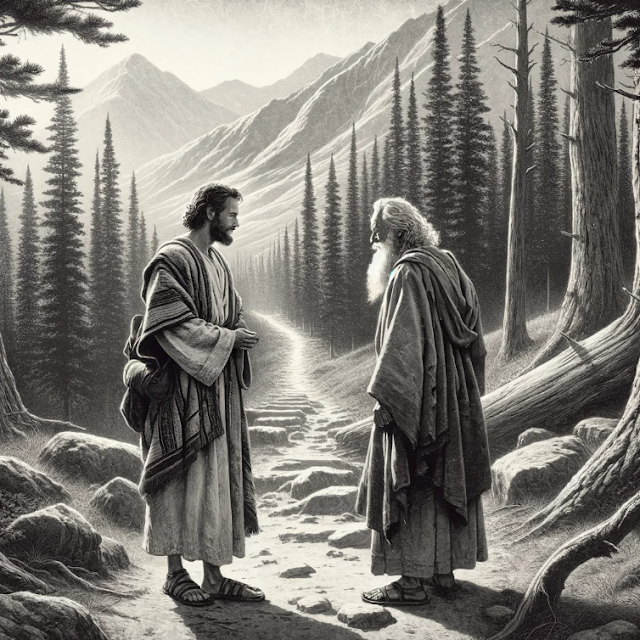On Hospitality and Politeness
On a day graced with the cool, clear dawn, Noah set out for his daily climb to the mountain cave where the sage monk had often counselled him. Yet today was different. On this cool, dawning day, Noah set out to ascend the daily route up the shoulder of the mountain. And there, halfway on the trail up to the mountain, where the forest cleared and the air felt crispy with the brittle scent of pine, Noah was met by Eugene. As a matter of fact, such was a very rare gesture between the two, yet it bridged an immense gap toward making them equals.
"Master Eugene," Noah began, a tone of surprise and urgency coming from his voice, "I don't know what to say; my heart is someplace between love and the bitter seeds of future discord."
Eugene was all ears as Noah poured out his tale. He talked about his betrothed, Seraphina, a woman of deep love and sincerity, and that of her father, who had been noted all over by the people of the village to be a man of politeness but marked by pride, appearing to have contempt for other people.
Noah had afforded this man every human courtesy—warmth, hospitality, respect—yet this one had remained appallingly scrutinizing.
"Her father sees me as a fortune seeker," Noah admitted. "And I fear that marrying her would, in effect, be tying myself to a man who forever views me with suspicion. Should I seek a partner of my own humble station instead?"
"Noah, consider what true politeness and hospitality are like. True, politeness is like the leaves of autumn, visible, full of colour, but many times withered and transient, blown away in gales of self-interest. Yet, hospitality is like the deep roots of mountain trees: not visible but indispensable, feeding all that come into its presence, even during winter." He paused and allowed the metaphor to drop into the young man's heart.
“Look in your partnership for more than the semblance of equivalence; look rather to similarity sustained by deep equality. Wealth and status may impress the eyes, but truth reaches into the heart to be felt in the tender spaces that only love and respect can wholly fill. If his father's heart be open to you, then think whether your hearts, being with her, can beat in a path of equals."
"Marriage," Eugene went on, turning to the examples given by the mountain setting, "is like this path on a mountain. It has ascents and descents, many sunny clearings, but also dark, tangled underbrush. And each step, Noah, taken hand in hand, should bring you closer to the summit you both seek. Ask yourself, Noah, can you and your beloved walk this path as true partners, prospering in spirit together despite the outer trappings of wealth or status?"
Eugene's words were a puzzle in themselves, of a kind Noah
knew he'd have to look at with eyes that see not only his own soul but the long
journey ahead. "A true partnership," said Eugene, "is more than
sharing the road in fair weather. Indeed, it is an equal share in both the
burdens and joys under all skies." With that thought guiding him, Noah
thanked Eugene and went back down the mountain. Indeed, his mind was clearer,
yet his heart still wrestled with the opened truths that the old monk brought
before him. His choice now wasn't between love and social standing. It was
between forging a way in which both could walk on an equal pedestal, each step
reflecting their bond and mutual respect.



Comments